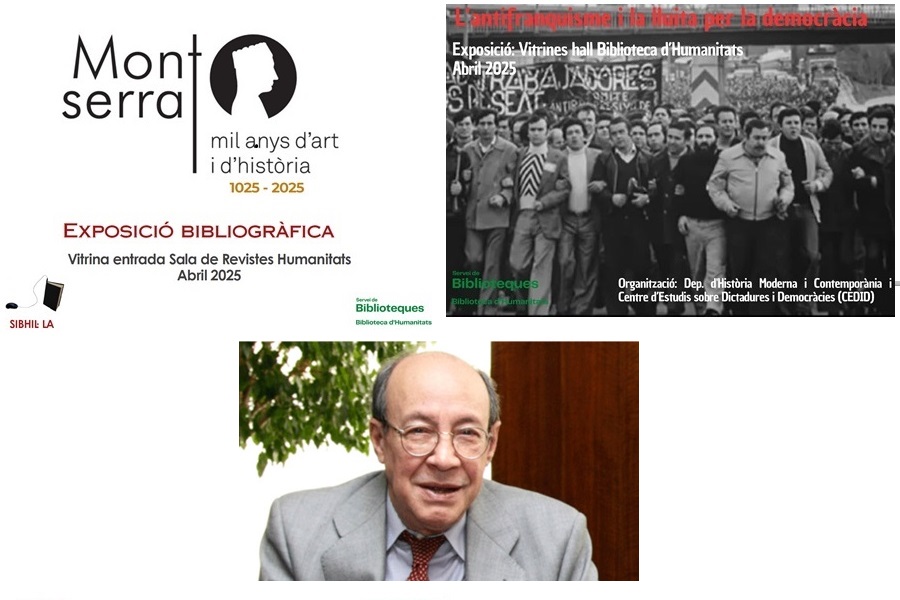New exhibitions at the Humanities Library
We are opening spring with three exhibitions on quite diverse themes, which we hope you enjoy!

This year marks the millennium of the founding of the Monastery of Montserrat by Abbot Oliba (1025–2025). To commemorate this milestone, the Humanities Library has curated a bibliographic exhibition exploring the many facets of the monastery: the natural environment of the Montserrat massif, the legends surrounding the site, the monastery’s history, its architecture and art, its cultural contributions (printing, library, school…), the spiritual life of the Benedictine monks, devotion to la Moreneta, pilgrimage, and the rich symbolism Montserrat holds within Catalan culture.
We embrace the mottos of this millennium (1025–2025) as our own: In communitate, Rege te ipsum, Labora, Ora, and Lege.
The exhibition can be visited in the Periodicals Room.
In the display cases of the entrance hall of Building L at the Humanities Library, Professors Carme Molinero and Pere Ysàs (Centre for Studies on Dictatorships and Democracies – CEDID), in collaboration with the library, present the exhibition: Anti-Francoism and the Struggle for Democracy.
This bibliographic exhibition traces the social movements and resistance efforts that emerged during the final years of Franco’s regime: the intensification of repression, the rise of anti-Franco political groups, and the growing wave of social conflict—including labour strikes, student protests, and neighbourhood actions that directly challenged the authoritarian state.
And on the third floor of our building, you’ll find the exhibition: Francesco Petrarca, a selection of books from the personal collection of Francisco Rico, a distinguished philologist and specialist in Humanism, who over the years has assembled an exceptional library, much of it devoted to the work of Francesco Petrarca.
The editions on display illustrate the transmission, reception, and scholarly study of Petrarch’s legacy, reflecting Rico’s learned perspective on one of the great authors of the European canon. A unique bibliographic journey that invites visitors to explore Petrarch’s enduring influence through the books that have accompanied the scholar throughout his career.